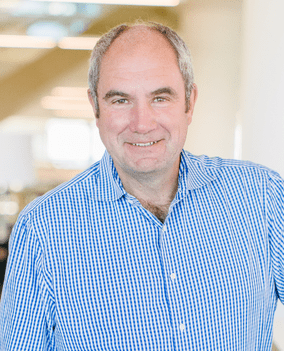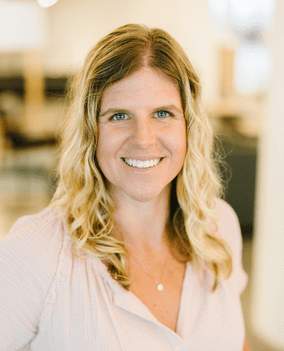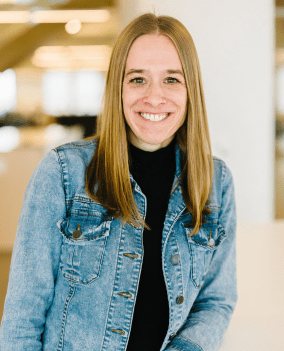“I don’t know about you, but this is my first pandemic.”
Marcus Fischer, CEO of advertising agency Carmichael Lynch, has been using that line since he heard it from a client not long ago.
Embracing that notion, in the face of COVID-19, the Great Resignation and other forces that have upended the workplace, means that answers for what to do about it — how to keep employees and keep them happy — can come from anywhere.
“It allows for an incredible environment of innovation and experimentation,” said Fischer, who sees agency culture as an investment. “Rather than large, sweeping policies, we’ve tried to implement small-scale tests-and-learns as much as we can.”
That means keeping things that work, like a flexible “Work From Where You Need To” policy, where the agency tries to make the office feel like a campus. Employees come in for events, team or client meetings but otherwise choose where to work. Carmichael Lynch now has people working remotely in 17 states.
The agency and other Top Workplaces are focusing on medical and mental health benefits, development opportunities, in-person and virtual events, and diversity, equity and inclusion (DEI) efforts to retain employees. Some are raising pay and giving home-office reimbursements.
With twice as many job openings as people qualified to fill them, according to the Society for Human Resource Management (SHRM), keeping personnel has hardly been more urgent. According to Fischer, with stress spiking for many as work and home life collide, this is a time to model empathy.
“We have to show each other grace, our clients and even ourselves,” Fisher said. “No one has gone through what we’ve gone through.”
Expanded health
One test item that has stuck at Carmichael Lynch is giving employees a free premium membership to Care.com, which includes 10 free days of caregiving for children, seniors or pets, or tutoring or housekeeping services. Additional benefits include on-demand help for stress and anxiety from Sanvello, plus Talkspace, an online and mobile therapy company.
Solution Design Group (SDG), a digital product services and consulting firm, added free virtual online health services, including in-home visits, and prescriptions from Nice Healthcare. While SDG introduced that benefit before the pandemic, employees have particularly made use of it since, said Jana Bertheaume, SDG’s chief people officer.
“We’ve had families that have children who have had broken bones, and they’ll do X-rays in the garage,” Bertheaume said. “They were able to do that without having to take their kids to an urgent care.”
Ovative Group, a digital-first marketer, recently began offering a no-cost medical coverage option to employees and their families. “We did an analysis to see what would it take if we just pay for all of it,” said Erin Aberg, vice president of talent services. “If we see something that will be a meaningful investment in our team, that will be meaningful for them, we’re willing to lean in and make that happen.”
Allianz Life Insurance Co. of North America, among new benefits, has removed co-pays for depression medication and for outpatient mental health or therapy visits, said Tracy Bruckschen, director of talent acquisition. Allianz also has created an on-site health care clinic with services from a nurse practitioner available at little to no cost.
Financial incentives
Top Workplaces also are sweetening financial incentives for employees to stay. Some 28% of employers nationally are adding new merit-pay programs, according to Regan Gross, human resources knowledge adviser at SHRM.
“Employers are increasing compensation as well, to remain competitive,” Gross said in an e-mail interview. “Inflation has increased the need for employers to look at ways they can pivot in response to employee needs — things like transportation, fuel cost, child care — all offer areas that employers should look at and respond to needs of employees.”
At Allianz, the 7.5% dollar-for-dollar company match within the company’s 401(k) program, though not new, is a key retention tool, Bruckschen said. It’s one of the highest such matches locally and possibly nationally.
Affinity Plus Federal Credit Union gave every employee a 4% raise in November, in addition to performance increases, and made the raise retroactive to January 2021, said Julie Cosgrove, chief talent officer.
Every employee who works directly with Affinity Plus members received a bonus, Cosgrove said. Those who work on Saturdays in branch locations now get time-and-a-half pay. All employees got a $500 stipend for their home offices.
“We recognize how the world has changed, how costs have increased, and we also have had a lot of successes in the organization,” Cosgrove said.
Development and diversity
Employers also are enhancing internal career-development opportunities, said SHRM’s Gross.
Affinity Plus partnered with Metro State University to create an MBA program, with the credit union paying 100% of tuition. Ovative covers the cost for remote team members to come to Minneapolis for an annual training day. New to Allianz are leadership opportunities for managers of hybrid teams as well as “skill uplift” opportunities for hybrid workers.
While many Top Workplaces stage in-person and online events to sustain their culture, those efforts also are more likely to include diversity, equity and inclusion efforts.
“Being in Minneapolis, in the center of racial and social justice reckoning, our entire philosophy around all of our work in DEIBA [diversity, equity, inclusivity, belonging and accessibility] has been ‘Do More, Do Better,'” Carmichael Lynch’s Fischer said. Employee-resource groups at the agency include a women’s leadership group, one for lesbian, gay, bisexual and transgender people and allies, and others for multicultural employees and those with disabilities and their allies and parents.
At Allianz, the newest employee resource groups are AllABLE (Allianz for Abilities Beyond Limitations and Expectations) and ASCENT (Asians Supporting, Collaborating, Educating and Networking Together).
“We continue to partner closely with our DEI organization to support and drive an inclusive environment where everyone brings their best self to work regardless of their role, background or work arrangement,” Bruckschen said. “The key there is to foster connectedness throughout the organization.”
Todd Nelson is a freelance writer in Lake Elmo. His e-mail is [email protected].
—————–
When COVID-19 abruptly sent employees at a Minneapolis digital media agency home to work, there was one team member whose companionship they could still enjoy.
Ogee the office puppy was available to spend weekends with workers from Ovative Group, upon request.
“There were obvious struggles when we went remote. Some of our people dealt with family care issues, loneliness, the isolation,” said Erin Aberg, vice president of talent services and Ogee’s main tender. “People could pick her up for the weekend as a way to connect. It was a creative way to address a need.”
Managing a hybrid workplace has some things in common with raising a puppy: It requires patience, a sense of humor and a willingness to put up with some messes. Most of all, clear and consistent communication and the ability of both sides to read signals is crucial.
Top Workplaces have developed a variety of communication methods to keep their teams clued in and connected as more shift to the hybrid model, with workers spending some time in traditional offices and other time “working elsewhere,” as senior management at UCare calls it.
To adapt, UCare formalized communications in an effort to make sure all employees were seeing the same information at the same time. The health plan provider — ranked 11th on this year’s large Top Workplaces list — upgraded conference rooms with higher quality cameras and microphones to support hybrid meetings. In return, there’s an expectation that employees dialing in from their remote workplaces will appear on camera at every function they participate in.
“When we can see each other, [and] facial expressions, it brings energy to conversations and our team members feel more engaged and connected with one another,” said Pat Schmitt, UCare’s chief administrative officer. “It helps everyone read the room.”
UCare regularly stages catered lunches for its workforce and sends Grubhub gift cards to hybrid staff so they can chow down alongside their onsite peers. That gesture is one of the smaller measures UCare has taken to make sure its hybrid and remote team members don’t lose an edge because they are not physically present.
The nonprofit has also formalized a policy to bring meetings to a complete stop when the cameras go off. That’s meant to ensure that decision-making doesn’t continue in the small talk as a gathering winds down, excluding virtual team members.
“In our employee surveys, we heard from people working elsewhere that they want a level playing field,” explained Schmitt. “We want there to be fairness, so that an employee who is in the physical line of sight of a leader doesn’t have an advantage when it comes to coaching and career development.”
Hybrid the hard way
At Froehling Anderson, No. 9 on the small companies list, the March 2020 shutdown forced everyone to flee the office and work remotely at the CPA firm’s busiest time of the year, with tax deadlines looming.
“People had to change. I was skeptical if we could get the work done, but they did it. It was impressive. It would have been hypocritical if we would have said, you have to come back and have your butt in a chair at the office,” said Al Delage, a partner who heads the tax group.
Now a hybrid worker himself, Delage comes into Froehling Anderson’s St. Louis Park office a few days a week for meetings but otherwise works remotely at his lake place near Princeton. As a senior-level manager, he thinks his embrace of his hybrid status has helped set the tone to allow others to choose the option.
“It’s always been our culture to be together, but culture is not four walls. It’s how we work together, how we treat each other,” he said.
The firm now emphasizes regular check-ins between top leaders and hybrid staff, especially junior team members. The importance of strengthening such contact was a lesson learned the hard way.
“We hired some bright people in the middle of the pandemic and a few left; we weren’t immune to the Great Resignation. They never formed that connection. When we saw that, we stepped up efforts with communication,” Delage said.
“Retention is a big deal for us; we put a lot of effort in recruiting, hiring and training and it’s costly to replace staff.”
Kevyn Burger is a Minneapolis writer.
SOURCES:















